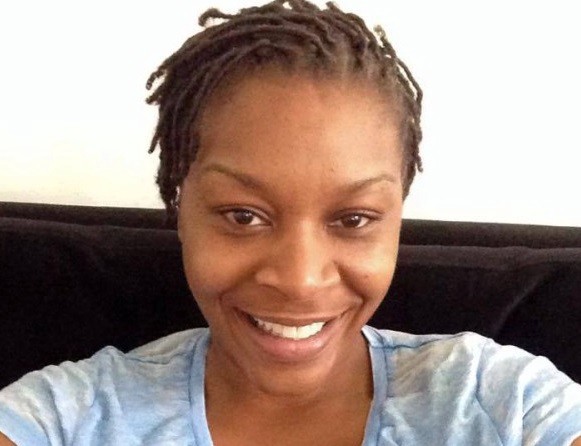Kate Davis is an Emmy and Peabody-award winning filmmaker whose film “Southern Comfort” won the Grand Jury Prize at Sundance and First Prize at Hot Docs. Her other credits include “The Cheshire Murders,” “The Newburgh Sting,” “Jockey,” and “Stonewall Uprising.”
“Say Her Name: The Life and Death of Sandra Bland” will premiere at the 2018 Tribeca Film Festival on April 25. The film is co-directed by David Heilbroner.
W&H: Describe the film for us in your own words.
KD: I might describe “Say Her Name: The Life and Death of Sandra Bland” as part mystery, part political thriller, and all in the context of a strong woman standing up to power. My film tells the story of Sandra Bland, a politically active 28-year-old African American who, after being arrested for a traffic violation in a small Texas town, was found hanging in her jail cell three days later.
Dash cam footage revealing her violent arrest went viral, leading to national protests claiming that this was a case of racially-motivated murder. From the inside, my partner and I followed the two-year case beginning shortly after Sandra’s death, exploring what really happened to this remarkable woman, and what we may learn from her tragedy.
W&H: What drew you to this story?
KD: The death of Sandra was shrouded in mystery and details that seemed to not make sense, making it a story which I felt was ideal for a film. So we followed the plot twists and turns as they unfolded. A clear appeal was also that this is a national case with an enormous built in audience, hungry to learn details behind the news stories and dash cam footage. But I also saw this film as an amazing chance to humanize the “victim” of police over-reach and raise issues regarding racism in law enforcement.
I was also drawn to Sandy’s character. She broke stereotypes of an arrested street person, as she was an educated black woman who knew her rights and felt passionate about standing up for justice, and her own videos bring to light many critical social and systemic problems in a way that few, if any others, have done.
W&H: What do you want people to think about when they are leaving the theater?
KD: I hope that the film helps people understand that it is terrifyingly easy for someone to become a victim of police abuse, and that very quickly one’s life can be in jeopardy when encountering the police, especially minorities — but also that not all police are bad, and that we need dialogue between different groups rather than remain in a polarized stand off in order to truly effect change.
I hope that audiences see that racism exists in the cracks of a situation. It is rarely good versus evil, yet we need to call out racism when we see it, and take a humble look at ourselves in the process. In Sandra’s own words, “We need to understand each other — that’s the only way this is going to work.”
W&H: What was the biggest challenge in making the film?
KD: We did not want to simplify the issues which Sandra’s story brings up, and it was hard to structure a story which takes in many people’s points of view. The film folds in Sandra’s family’s perspectives, their attorneys, protesters, and even the point of view from Texas law enforcement.
W&H: How did you get your film funded? Share some insights into how you got the film made.
KD: We had the full support from HBO Documentary Films, which felt strongly that Sandra’s story was important to tell. This gave us the freedom to jump in just after the story broke worldwide and follow the case through its conclusion over two years later.
W&H: What does it mean for you to have your film play at Tribeca Film Festival?
KD: I am excited that our world premiere is at Tribeca, where Sandra Bland’s family and lead attorneys will greet the strong New York City film fans and a caring public.
W&H: What’s the best and worst advice you’ve received?
KD: I was told to just jump in and make films, not wait for everything to feel lined up, which is advice I’ve passed on to others.
I am not sure about worst advice. Maybe I have amnesia.
W&H: What advice do you have for other female directors?
KD: Just believe. All acts of film are kinds of leaps of faith, even for the non-religious. And women perhaps can try to ignore inner voices of doubt and just jump off the cliff.
W&H: Hollywood and the global film industry are in the midst of undergoing a major transformation. Many women — and some men — in the industry are speaking publicly about their experiences being assaulted and harassed. What are your thoughts on the #TimesUp movement and the push for equality in the film business?
KD: Everyone will benefit from having females be more equally represented in the film industry. On so many levels it may help in work environments, help younger women have stronger role models, increase the talent pool, and make for more diverse storytelling.







